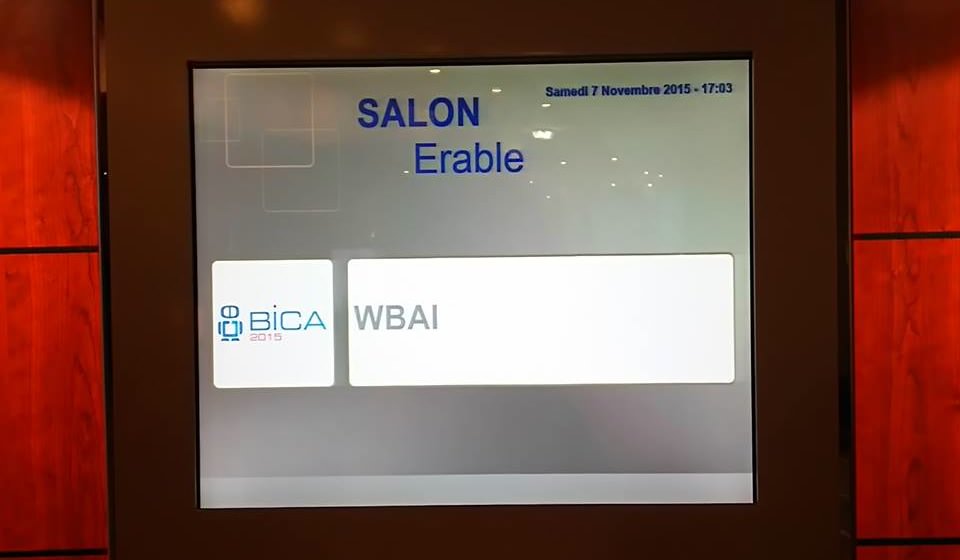WBAI members participated in the BICA 2015 conference held Lyon, France from Nov. 6 to Nov. 8. This article introduces their activities (see also the previous report).
BICA
The Biologically Inspired Cognitive Architectures (BICA) conferences gather researchers to present their theoretical and implementational works inspired from biological intelligence to realize human-level cognitive architecture (framework for intelligent agent). In the sixth annual international conference, eight invited talks and 63 general presentations from about 100 participants were held in three tracks and in a plenary track.
Presentations from WBAI members
Presentations “Modeling of Stress/Interest State Controlling in Robot-Child Play Situation” by Takeshi Omori and “A Generic Software Platform for Brain-inspired Cognitive Computing” by Koichi Takahashi were held. Akira Kurihara and Naoya Arakawa from WBAI joined to discussions.
The WBA Session
In the second day, a workshop was held to discuss the whole brain architecture approach by courtesy of the conference. The session, consisting of a presentation from H. Yamakawa (the chairperson of WBAI) and K. Takahashi (the director), the presentation by T. Ito, whose team won the best prize in the first WBA hackathon, and a panel discussion, gathered 20 participants.
Presentation from Yamakawa and Takahashi
A presentation of BriCA, a software framework to implement WBA, by K. Takahashi
A presentation on AGI the WBA approach toward its realization, by H. Yamakawa
Presentation of their result of the hackathon by the Ito team
The leader of the Ito team (Takeshi Ito, Jumpei Ukita, and Ayaka Kato) at the first WBA hackathon presented their work on Curiosity-based Search with Place Cells.
Panel Discussion
With Tarek Besold, to hold the Human-level AI conference in 2016, as the chair, discussion was held with BICA participants, including Antonio Chella and those from WBAI, i.e., Hiroshi Yamakawa, Koichi Takahashi, Takashi Omori, Akira Kurihara, Naoya Arakawa, and Kotone Itaya.
Discussions was favorable for WBA and we could foresee the possibility of WBA development under international collaboration.



 Japanese
Japanese